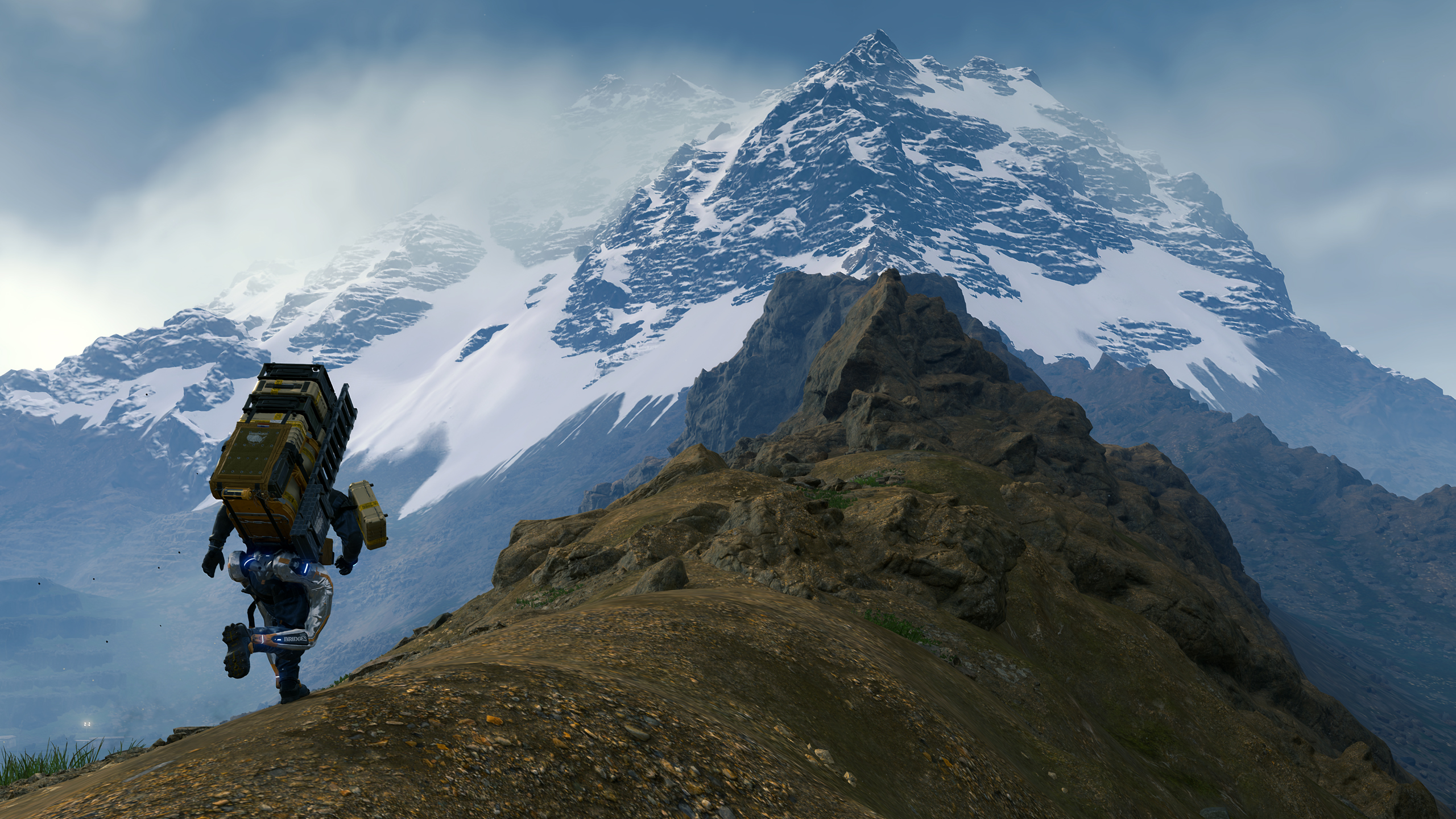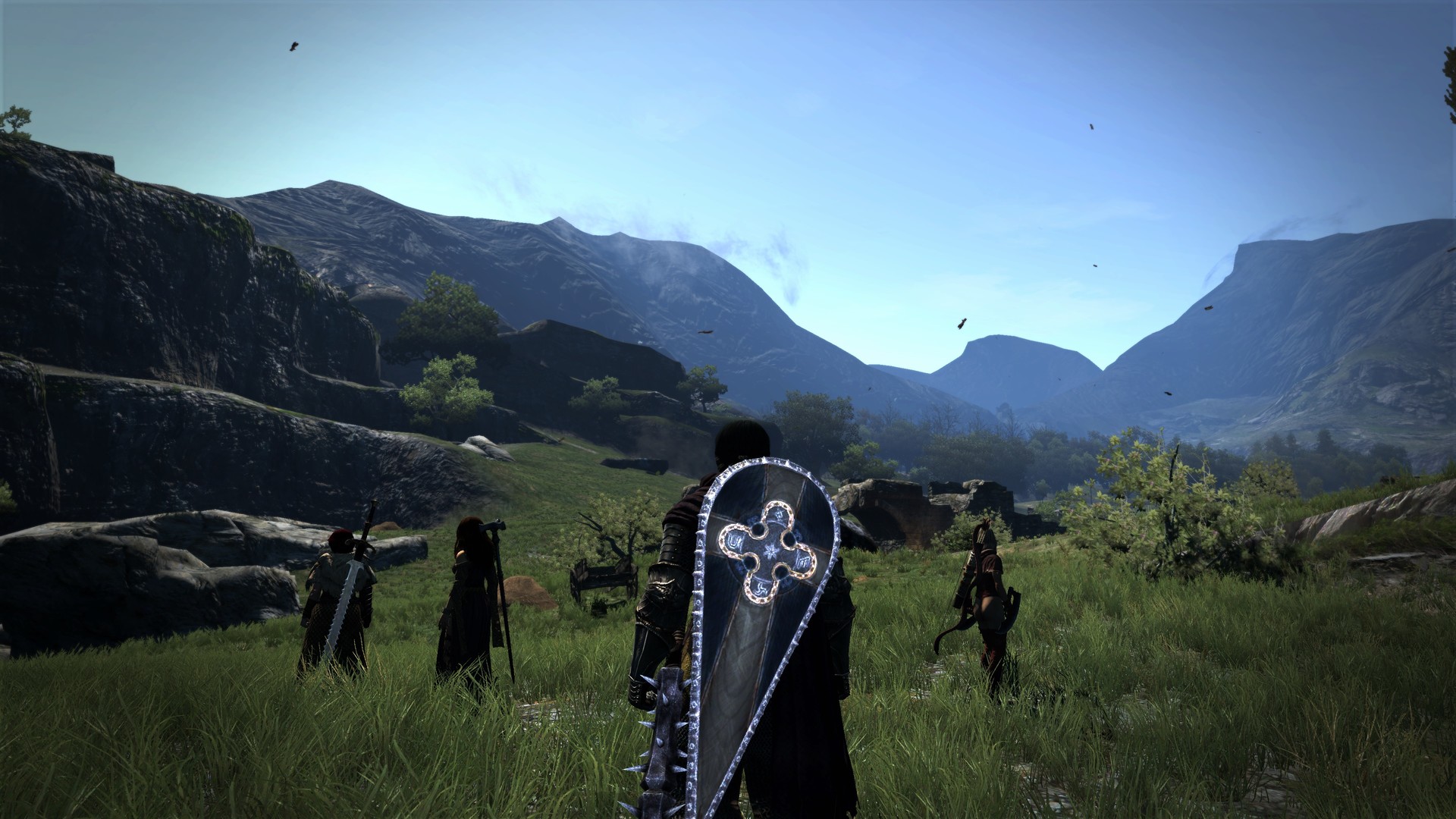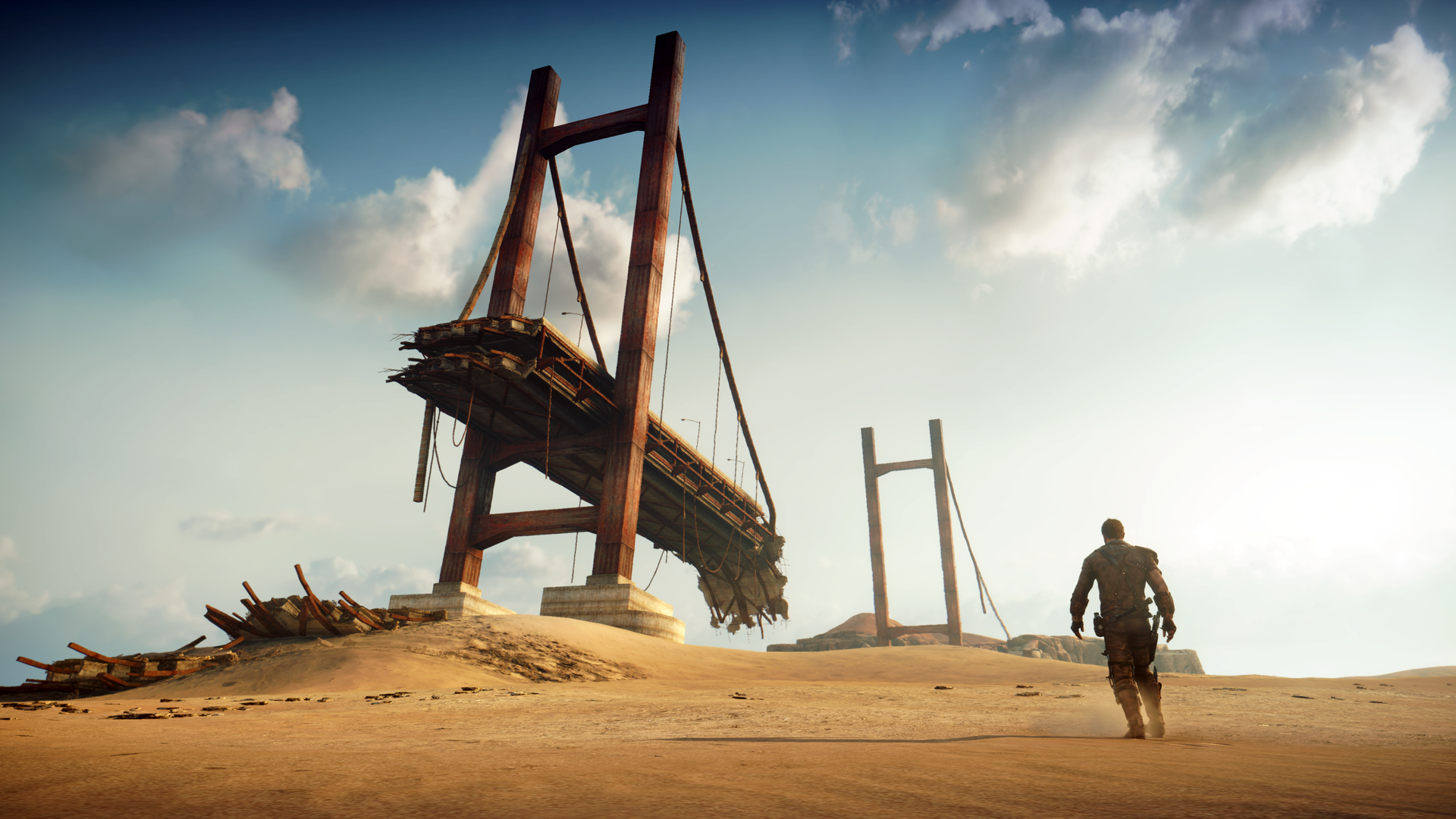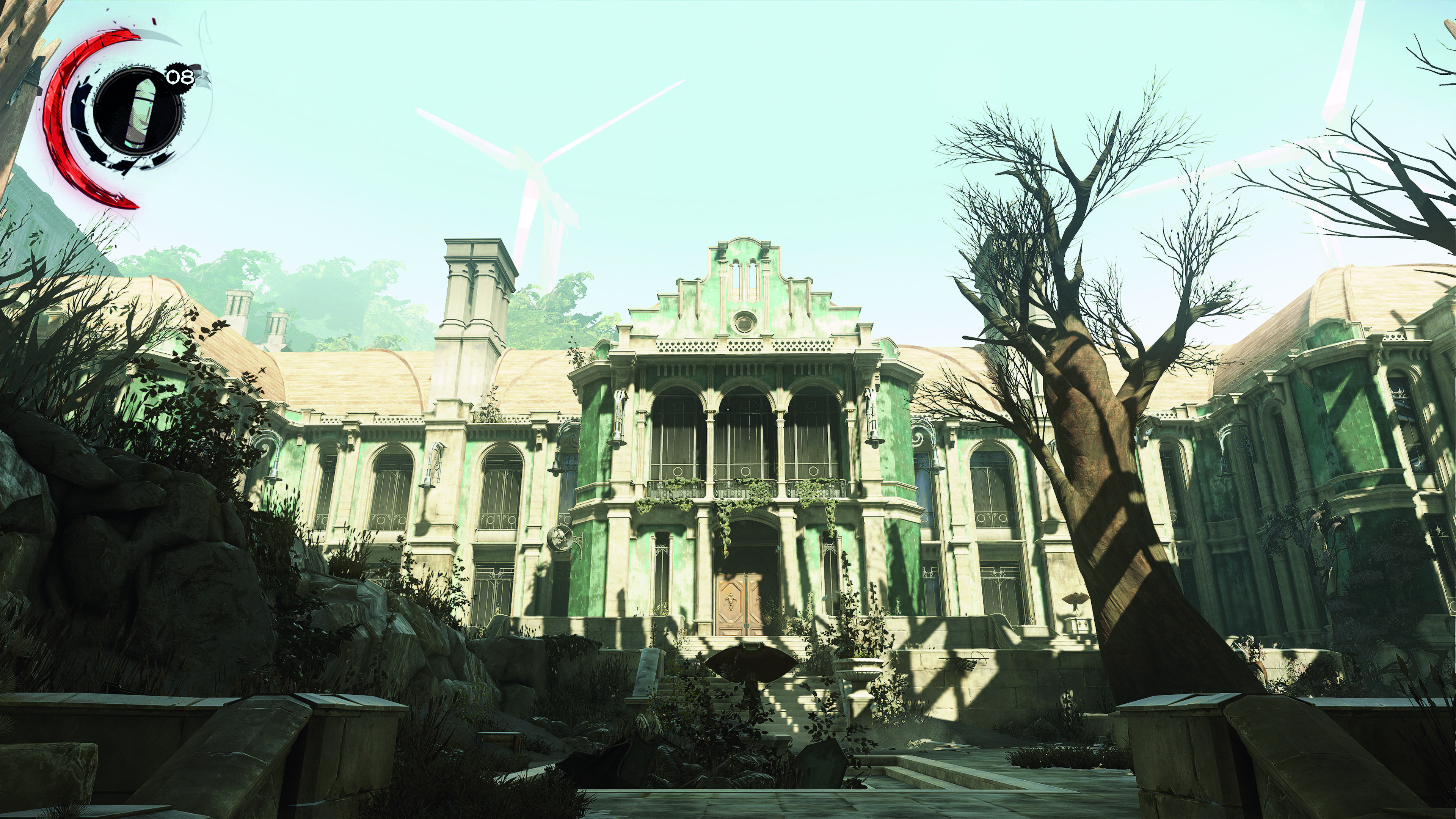
One of the more common complaints about modern open world games is how they have become exercises in 'icon-chasing', where you spend most of your time pinging between dozens of different question-marks on a map, rushing to sweep them up like a weaponised cleaner. It turns what should be a free-spirited adventure into an exhaustive to-do-list, and can make what should be your relaxation time feel more like work.
The question, of course, is how do games resolve this? One potential solution would be to make open-worlds smaller and easier to complete. But size alone isn't the problem, it's what open-worlds do with these spaces. Pointing players at the 'interesting' bits of your open world implies that everything between those icons, which likely totals most of your game world, isn’t interesting. But open world games are supposed to be about these spaces. They exist specifically to be journeyed through.
So perhaps the solution is to make the act of journeying more interesting. Many open world games acknowledge that journeys should not be entirely passive. Skyrim occasionally accosts you with a bandit on a road, while Red Dead Redemption might spawn a horse thief that nicks your steed and forces you to chase them down. These are steps in the right direction, but the problem with such randomly spawning events is that they are specific events. They repeat themselves, which quickly turns from being a novelty into an irritation, pushing your finger toward the fast-travel button.

To really create that sense of adventure, to make a player's journey feel meaningful, open world games need to place much greater emphasis on what happens on the road, rather than where the road ends. In Dragon's Dogma, many of its most spectacular fights happen while en-route to other places. You might try to take a shortcut through a mine and end up battling a huge cyclops, or approach the city of Gran Soren only to be attacked by a giant bird monster, forcing you to grapple onto its body and bring it down in-flight. The game is essentially a fantasy road-trip, and the way it approaches encounter design makes it feel more personal and unpredictable than a more formatted open world.
Ideally though, you want your game to be able to generate such experiences from the systems themselves. A surprisingly good example of this is Avalanche's Max Max. Mostly, Mad Max uses a by-the-numbers open world template, filling its wasteland with cookie-cutter activities. But the game also features dynamic lightning storms that batter the ground with thunderbolts and kick up debris that can knock Max flying. These storms can intersect with other game features and systems, such as the bandit convoys you can chase around the map. Trying to harpoon cars off the road while being peppered by lightning, or squaring up for a fistfight against a bandit only to watch them get poleaxed by a flying chunk of scrap, is the exact kind of unique moment that open world games were always intended to create.
But the undisputed champion of the open world journey is Death Stranding. Unlike virtually every other open-world game, everything interesting in Death Stranding happens en-route to somewhere else, whether it's sneaking quietly through a nest of BTs, or dashing to evade the electric spears of a gang of tech-hungry Mules. Sam Bridges is basically an apocalyptic postman, and Death Stranding understands that a postman's job becomes interesting not when they shove the letters through the letterbox, but when they get chased down the street by the Alsatian at number 32.

More importantly still, Death Stranding makes the terrain itself an active participant in play. You're not simply travelling through it, gawping at the scenery and watching for points of interest. You're plotting a route across a ridgeline, deploying ladders and ropes to create new pathways up mountains and across ravines, establishing new infrastructure so that your journey is easier next time, or just trying to stop Sam from falling on his arse while descending a slope. Even death has a major impact on terrain, blowing huge craters in the landscape that make your next courier job a very different experience.
The biggest gaming news, reviews and hardware deals
Keep up to date with the most important stories and the best deals, as picked by the PC Gamer team.
Death Stranding is built to keep you engaged in your surroundings regardless of what those surroundings are. It achieves this through thinking about what its themes are, and how to bring those into play on a moment-to-moment basis. There are other potential ways to do this. Returning to Mad Max, instead of using the familiar open world template, what if everything in the game was mobile, and Max was constantly tracking and chasing huge, Fury Road-like convoys of vehicles, slowly battling his way forward as the convoy travels across vast tracts of desert and wasteland.
Alternatively, why be content with one open world? One of the most interesting proto open-world games was Soul Reaver, because it actually had two versions of its world—the physical and spiritual realms—overlaid atop one another. These worlds are similar but different, which the game uses to build environmental puzzles. A doorway in the physical world might not exist in the spiritual. This means you're constantly engaged with the level design, looking for clues and inconsistencies that might reveal a passageway. You could even have actions in one world affect the other, much like Dishonored's time-travelling level A Crack in the Slab.

Or you could try something really weird like The Eternal Cylinder, a game in which you play a Spore-like creature that has to evolve and adapt to escape from a rolling pin the size of a mountain-range. It sounds daft, but the game looks fantastic, super-dynamic and open-ended. It's also an idea that could work in other contexts. Instead of fleeing from a giant cylinder, imagine an open-world Terminator game where you had no objectives but to evade a T-101 however you could, gearing up as you did so and searching for a suitable place for a showdown.
Before the phrase 'open-world' became du jour, this style of game was known by another term: sandbox. It conjures up a very different image, one not of endless horizons, but of a space designed specifically to encourage creative play, to facilitate unique stories and experiences. This is what I want from future open-world games. I'm tired of filling-out maps and checking activity boxes. I want open worlds to bring the adventure to me.
Rick has been fascinated by PC gaming since he was seven years old, when he used to sneak into his dad's home office for covert sessions of Doom. He grew up on a diet of similarly unsuitable games, with favourites including Quake, Thief, Half-Life and Deus Ex. Between 2013 and 2022, Rick was games editor of Custom PC magazine and associated website bit-tech.net. But he's always kept one foot in freelance games journalism, writing for publications like Edge, Eurogamer, the Guardian and, naturally, PC Gamer. While he'll play anything that can be controlled with a keyboard and mouse, he has a particular passion for first-person shooters and immersive sims.

